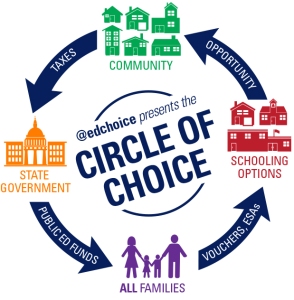(Guest post by Greg Forster)
The new issue of OCPA’s Perspective carries my article on school choice for the 12,000 foster children in Oklahoma. The state is now adopting massive fixes to address its broken, abusive foster care system:
If Oklahoma is going to adopt sweeping reforms to serve these children better, it shouldn’t just think about homes. It should think about schools. Having failed to care for these 12,000 children when they needed it most, Oklahoma owes them something.
The state wouldn’t have to create a new program:
Oklahoma already has two school choice programs: a special needs voucher modeled on McKay, and a tax-credit scholarship program serving low-income students. Either or both of these programs could accommodate foster children with a slight modification – just write a line into the law saying foster children are eligible regardless of disability status or family income.
Other states have already adopted this practice. Foster children are automatically eligible for two school choice programs in Arizona. “Lexie’s Law,” which is Arizona’s answer to McKay, includes foster children alongside special education students. So does Arizona’s innovative new education savings account law, which gives parents control of their children’s education funding to direct to a school of their choice. Meanwhile, in Florida, foster children of any income level are eligible for the state’s tax-credit scholarship program for low-income students.
And since choice saves money, it wouldn’t cost a dime – an important consideration given that Oklahoma is on the hook for $150 million to clean up its foster care mess.
Of course, only universal choice will get us where we need to go. But it’s not a perfect world, and few people know that better than foster kids in Oklahoma. One line in a new law could give 12,000 kids access to choice on better terms than the ones that prevail in some other programs already.




 Posted by Greg Forster
Posted by Greg Forster 




